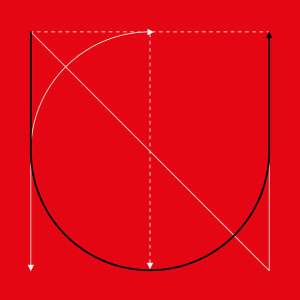Tags
Album, album without you, album without you single, C-pop, china, Chinese, chinese lyrics, chinese version, cpop, eng, eng lyrics, eng meaning, Eng Sub, eng trans, eng translation, ge ci, geci, Hanyu, Hanzi, idol, K-pop, korea, korean, kpop, Lyrics, lyrics meaning, lyrics trans, lyrics translation, Mandarin, Mando-pop, mandopop, meaning, nct, NCT U, nct u without you, nct u without you chinese, nct u without you chinese lyrics, nct u without you chinese version, nct u without you eng, nct u without you eng lyrics, nct u without you eng meaning, nct u without you eng trans, nct u without you eng translation, nct u without you english, nct u without you english lyrics, nct u without you english meaning, nct u without you english trans, nct u without you english translation, nct u without you lyrics, nct u without you lyrics meaning, nct u without you lyrics trans, nct u without you lyrics translation, nct u without you meaning, nct u without you pinyin, nct u without you pinyin lyrics, nct u without you pinyin tones, nct u without you trans, nct u without you translation, nct without you, nct without you chinese, nct without you chinese lyrics, nct without you chinese version, nct without you eng, nct without you eng lyrics, nct without you eng meaning, nct without you eng trans, nct without you eng translation, nct without you english, nct without you english lyrics, nct without you english meaning, nct without you english trans, nct without you english translation, nct without you lyrics, nct without you lyrics meaning, nct without you lyrics trans, nct without you lyrics translation, nct without you meaning, nct without you pinyin, nct without you pinyin lyrics, nct without you pinyin tones, nct without you trans, nct without you translation, nctu, nctu without you, nctu without you chinese, nctu without you chinese lyrics, nctu without you chinese version, nctu without you eng, nctu without you eng lyrics, nctu without you eng meaning, nctu without you eng trans, nctu without you eng translation, nctu without you english, nctu without you english lyrics, nctu without you english meaning, nctu without you english trans, nctu without you english translation, nctu without you lyrics, nctu without you lyrics meaning, nctu without you lyrics trans, nctu without you lyrics translation, nctu without you meaning, nctu without you pinyin, nctu without you pinyin lyrics, nctu without you pinyin tones, nctu without you trans, nctu without you translation, Pinyin, pinyin lyrics, pinyin tones, sm, Sm Ent, Sm Entertainment, sment, Song, song lyrics, Trans, Translation, without you, without you chinese, without you chinese lyrics, without you chinese version, without you eng, without you eng lyrics, without you eng meaning, without you eng trans, without you eng translation, without you english, without you english lyrics, without you english meaning, without you english trans, without you english translation, without you lyrics, without you lyrics meaning, without you lyrics trans, without you lyrics translation, without you meaning, without you pinyin, without you pinyin lyrics, without you pinyin tones, without you trans, without you translation, 歌詞, 歌词
像獨自生長的樹 /// 面對著一片荒蕪
Xiàng Dú Zì Shēng Zhǎng De Shù /// Miàn Duì Zhe Yí Piàn Huāng Wú
Translation: Like a tree that grew up alone, facing the barrenness,
____________________________________________________
在無人關注 /// 被遺棄的世界孤獨
Zài Wú Rén Guān Zhù /// Bèi Yí Qì De Shì Jiè Gū Dú
Translation: In an uninhabited area, abandoned by a lonely world,
____________________________________________________
懷抱的一點渴望 /// 終點卻總在遠方
Huái Bào De Yì Diǎn Kě Wàng /// Zhōng Diǎn Què Zǒng Zài Yuǎn Fāng
Translation: Longing a little for an embrace, yet the end is always far off.
____________________________________________________
被殘酷的高牆 /// 推落的傷只能隱藏
Bèi Cán Kù De Gāo Qiáng /// Tuī Luò De Shāng Zhǐ Néng Yǐn Cáng
Translation: Oppressed by the high wall, the pain that was pushed off can only be hidden.
____________________________________________________
我們以孤獨之名生存 /// 卻等待和我有同樣傷痕
Wǒ Men Yǐ Gū Dú Zhī Míng Shēng Cún /// Què Děng Dài Hé Wǒ Yǒu Tóng Yàng Shāng Hén
Translation: We are alone in the name of survival, but wait and (you’ll) have the same scars as me.
____________________________________________________
同行的那個人
Tóng Xíng De Nà Gè Rén
Translation: (My) fellow counterpart,
____________________________________________________
×握緊我的手 /// 畫成一個圓
Wò Jǐn Wǒ De Shǒu /// Huà Chéng Yí Gè Yuán
Translation: Hold my hand tightly and draw a circle.
____________________________________________________
就能分攤這命運的殘缺
Jiù Néng Fēn Tān Zhè Mìng Yùn De Cán Quē
Translation: Then we will be able to share this incomplete destiny.
____________________________________________________
把夢放在我身邊 /// 我心在你身邊
Bǎ Mèng Fàng Zài Wǒ Shēn Biān /// Wǒ Xīn Zài Nǐ Shēn Biān
Translation: Place your dreams by my side, my heart is by your side.
____________________________________________________
堅持一點堅決一點
Jiān Chí Yì Diǎn Jiān Jué Yì Diǎn
Translation: A little more persistent, a bit more determined,
____________________________________________________
幸福就會離我們更近一點
Xìng Fú Jiù Huì Lí Wǒ Men Gèng Jìn Yì Diǎn
Translation: Happiness will be a little bit closer to us.
____________________________________________________
心再次相連到永遠
Xīn Zài Cì Xiāng Lián Dào Yǒng Yuǎn
Translation: Our hearts are once again linked together, until forever.
____________________________________________________
Can’t live without you
____________________________________________________
像隨著潮水漲退 /// 像離開大海徘徊
Xiàng Suí Zhe Cháo Shuǐ Zhǎng Tuì /// Xiàng Lí Kāi Dà Hǎi Pái Huái
Translation: Like following along with the rise and fall of the tides, like leaving the ocean and wandering about,
____________________________________________________
我漸漸疲倦 /// 盡頭卻看不見樂園
Wǒ Jiàn Jiàn Pí Juàn /// Jìn Tóu Què Kàn Bú Jiàn Lè Yuán
Translation: I’m gradually growing tired, (I’m) at the end yet (I) can’t see paradise.
____________________________________________________
我需要你溫暖有力的肩
Wǒ Xū Yào Nǐ Wēn Nuǎn Yǒu Lì De Jiān
Translation: I need your warm, strong shoulder.
____________________________________________________
你回答我肯定的笑臉
Nǐ Huí Dá Wǒ Kěn Dìng De Xiào Liǎn
Translation: You answer me with an affirmative smile.
____________________________________________________
I need you I need you
____________________________________________________
Repeat×
____________________________________________________
閉上了雙眼 /// 感覺你在身邊 /// 點亮光芒
Bì Shàng Le Shuāng Yǎn /// Gǎn Jué Nǐ Zài Shēn Biān /// Diǎn Liàng Guāng Máng
Translation: Closing my eyes, I feel you by my side, lighting up the brilliant rays.
____________________________________________________
帶我走出從前給我安慰
Dài Wǒ Zǒu Chū Cóng Qián Gěi Wǒ Ān Wèi
Translation: Take me away from the past, give me comfort.
____________________________________________________
不管路有多遠 I’m with you
Bù Guǎn Lù Yǒu Duō Yuǎn I’m with you
Translation: No matter how long the road is, I’m with you.
____________________________________________________
在你伸出的雙臂 /// 感覺你的了解
Zài Nǐ Shēn Chū De Shuāng Bì /// Gǎn Jué Nǐ De Liǎo Jiě
Translation: In your outstretched arms, I feel your understanding.
____________________________________________________
讓我有勇氣 /// 去面對這一切 /// 傷與悲
Ràng Wǒ Yǒu Yǒng Qì /// Qù Miàn Duì Zhè Yí Qiè /// Shāng Yǔ Bēi
Translation: Let me have the courage to face everything, the pain and the sorrow.
____________________________________________________
不管我有多累絕對不後退
Bù Guǎn Wǒ Yǒu Duō Lèi Jué Duì Bú Hòu Tuì
Translation: No matter how tired I am; I absolutely won’t retreat.
____________________________________________________
Repeat×
____________________________________________________
____________________________________________________
____________________________________________________
Translator’s Notes:
*(This song is really good and I think this and “The 7th Sense” are really good debut songs.)
*(I do not own the lyrics to this song – the lyrics belong to the writers. I typed the lyrics myself using Google Translate. I did the Pinyin and Translation myself, however. I use Traditional Chinese characters just like they do in Taiwan because I prefer them to Simplified and I taught myself Chinese using Traditional characters. Please note that Chinese is not my first language so at times, my translations might be off, too literal, or wrong. I’m still learning, and I translate songs to gain experience, so I apologize in advance for any errors ^^)
*(To translate songs, I use an online Mandarin dictionary, an online Cantonese dictionary (it is a Canto-Mando, Mando-Canto, Canto-Eng, Mando-Eng, Pinyin-Jyutping, etc., dictionary and is VERY explanatory) and a paperback Mandarin dictionary.)
*(All the awkward spacing in the Pinyin is to show the different words. It is color-coded on my computer, but I can’t keep the colors T-T)
*(When a part of the translation is in parentheses, it means that that word is implied to make the translation sound better in English. Words will be implied because Chinese is much more vague than English and sometimes doesn’t make a whole lot of sense when translated literally.)
*(Throughout the song, in the Pinyin, every time you see “不” (Bu) written with the second tone (ú) instead of the standard fourth tone (ù), it is because the character following it is also pronounced with the fourth tone. “不” is standardly pronounced with the fourth tone in Mandarin, except for when it is followed by another character of the fourth tone, in which case its pronunciation changes to tone two. I changed the pronunciation each time this happened, for example, “Bú Shì”)
*(Throughout the song, in the Pinyin, every time you see “一” (Yi) written with either the second tone (í) or forth tone (ì) instead of the standard first tone (ī), it is because the character following it changes the pronunciation. “一” is standardly pronounced with the first tone in Mandarin, except for when it is followed by a character that is pronounced with the first, second, third, or fourth tone. If “一” is followed by a character pronounced with the fourth tone, then the pronunciation for “一” will be changed to the second tone, “Yí” and when “一” is followed by a character with the first, second, or third tone, its pronunciation will change to the fourth tone “Yì”. I changed the pronunciation each time this happened, for example, “一樣” (Yí Yàng) and “一場” (Yì Chǎng).)
*(In the line, “同行的那個人”, “同行” (Tóng Xíng) is also pronounced “Tóng Háng”. “Tóng Háng” does have a different meaning from “Tóng Xíng” with “Tóng Xíng” meaning “Journey Together/Travel Together” and “Tóng Háng” meaning “(N.) Person in the Same Business or Occupation/Of the Same Trade or Profession”. Also, the word “那個” (Nà Gè) is also pronounced “Nèi Gè”. This pronunciation comes from the sound made when the words “那” and “一” (Yī) are slurred together and the “Nei” sound omits the character “一”. You can pronounce “那個” either way, but in the song, they are saying “Na Ge”.)
*(In the line, “在你伸出的雙臂 /// 感覺你的了解”, another writing for “了解” (Liǎo Jiě) is “瞭解” (Liǎo Jiě). This is a Traditional-only writing and “了解” is the Simplified form, though it is also very commonly used in Traditional writing. You wouldn’t see “瞭解” in Simplified writing, but you would see it in Traditional. “了解” is probably the more popular writing in Traditional Chinese, however.)
*(I hope you all liked my translation. Please do not edit my translation and please credit me if you would like to use it. (I may be credited as either peach-jjinyoung.tumblr.com or kimsnugglegyu7.wordpress.com). Feel free to like, comment, reblog, follow, etc. and remember to always support NCT U, C-pop, and K-pop. Xie Xie ^^)

